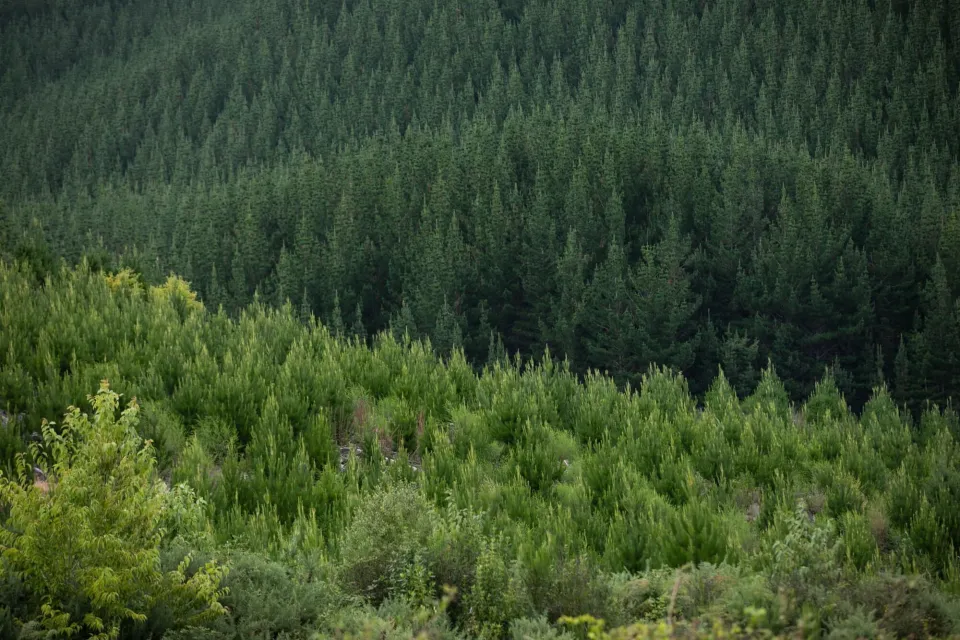-
About
-
Products
- By Timber Product
- Cladding
- Decking
- Joinery
- Screening
- Panelling
- View all
- By Application
- Exterior Cladding / Siding
- Exterior Rain Screen
- Exterior Roofing
- Interior Walls & Ceilings
- Soffits
- Screening, Fins & Battens
- Windows, Doors & Joinery
- Posts & Beams
- Accessories + Samples
- Coatings
- Fixings
- Samples
-
Shop
- Samples
- Timber Samples
- Architectural Sample Box
- View all
- Accessories
- Coatings
- Fixings
- View all
-
Resources
- By Resource Type
- Technical Data Sheets
- Guides & Manuals
- Technical Articles
- Profile Drawings
- View all
- How To
- How To Specify
- How To Install
- How To Maintain
- Projects
- Contact
HOLIDAY HOURS / All online orders made between 17 Dec to 4 Jan will be shipped from 5 Jan. Learn more here.
Endangered Kārearea (NZ Falcon) Is Nurtured in Abodo Timber Sourced Forest
Kaingaroa forest holds the highest known density of the endangered kārearea.
Capable of speeds over 100km/h¹ and rarer than Kiwi with a population of only 10,000², New Zealand’s only remaining native daytime raptor, the kārearea or NZ falcon is classed as Near Threatened under the IUCN criteria and At Risk by the New Zealand Department of Conservation.
Deforestation, degradation of habitat quality, depredation by introduced mammals and human persecution due to fear of stock and pet predation are the major threats to this native raptor.
Kārearea are non-migratory and live in various habitats from native forests, exotic pine forests, open hill country, to tussock lands. Given the large solid habitat, the Kaingaroa forest (1900 km2), where Abodo sources its radiata pine, holds the highest known density of the endangered kārearea.
The Kaingaroa management company, Timberlands Limited, helps the sustainability of the kārearea population through supporting scientific studies and implementing the results of those studies into the forest management operations near nesting kārearea.
Timberlands Limited’s forest stewardship extends to moving their operations when any nesting kārearea are spotted by crews so the fledglings can thrive in their preferred habitat.³
The forest creates a mosaic-like landscape consisting of different-aged tree stands from cut-over to mature stands.
Among those stands, the most important habitat for the kārearea is the open-mature forest edge. The open fields serve as a hunting ground for kārearea because those attract exotic small passerine birds.
Logging debris left in the open fields provide suitable nesting sites. But more importantly, the remaining tall mature trees adjacent to the open fields offer vantage points for defence of territory, hunting opportunities, and protecting nests.
Kārearea are well known for aggressive dive-bombing towards people, usually in order to protect the nest.
The kārearea nest, constructed by the male, is a shallow scrape on the ground, rocky outcrop, or within the epiphytes that grow in large trees. The female will lay 1-4 eggs. Parent birds do not tolerate intruders from before the eggs are laid until the fledglings are flying a fair distance from the nest (approximately for 80 days in total).
Female kārearea are approximately a third larger than males (females weigh between 400g and 720g and males between 200g and 360g). With the larger body size, females can hunt large prey such as rabbits and kereru.
The kārearea is often confused with the kāhu or Australasian harrier (Circus approximans) commonly seen soaring over open pastures. Unlike the kāhu, the kārearea is predominantly a pursuit hunter and primarily preys on small passerines and rodents.
The kārearea is indeed considered New Zealand's fastest flying bird. They move their short wings rapidly on the go but sometimes soar, especially when windy.
Biodiversity conservation being one of the environmental principles of Forest Stewardship Council® (FSC®) certification, sees Timberlands Limited partner with birds of prey advocacy group, Wingspan, to help safeguard kārearea so it can breed, fledge and soar over the Kaingaroa forest for generations to come.⁴⁺⁵
This is an important connection of values for Abodo as it sources its Radiata Pine mainly from the Kaingaroa forest, to craft its thermally modified timber.
References and Sources:
- New Zealand falcon/kārearea: New Zealand native land birds (doc.govt.nz)
- Rarer than kiwi: Wingspan celebrates 29 years of monitoring karearea - NZ Herald
- Logging companies take falcons under their wing | Stuff.co.nz
- More trees planted will boost NZ falcon's chances of survival | Stuff.co.nz
- Rare Species | Timberlands (tll.co.nz)


